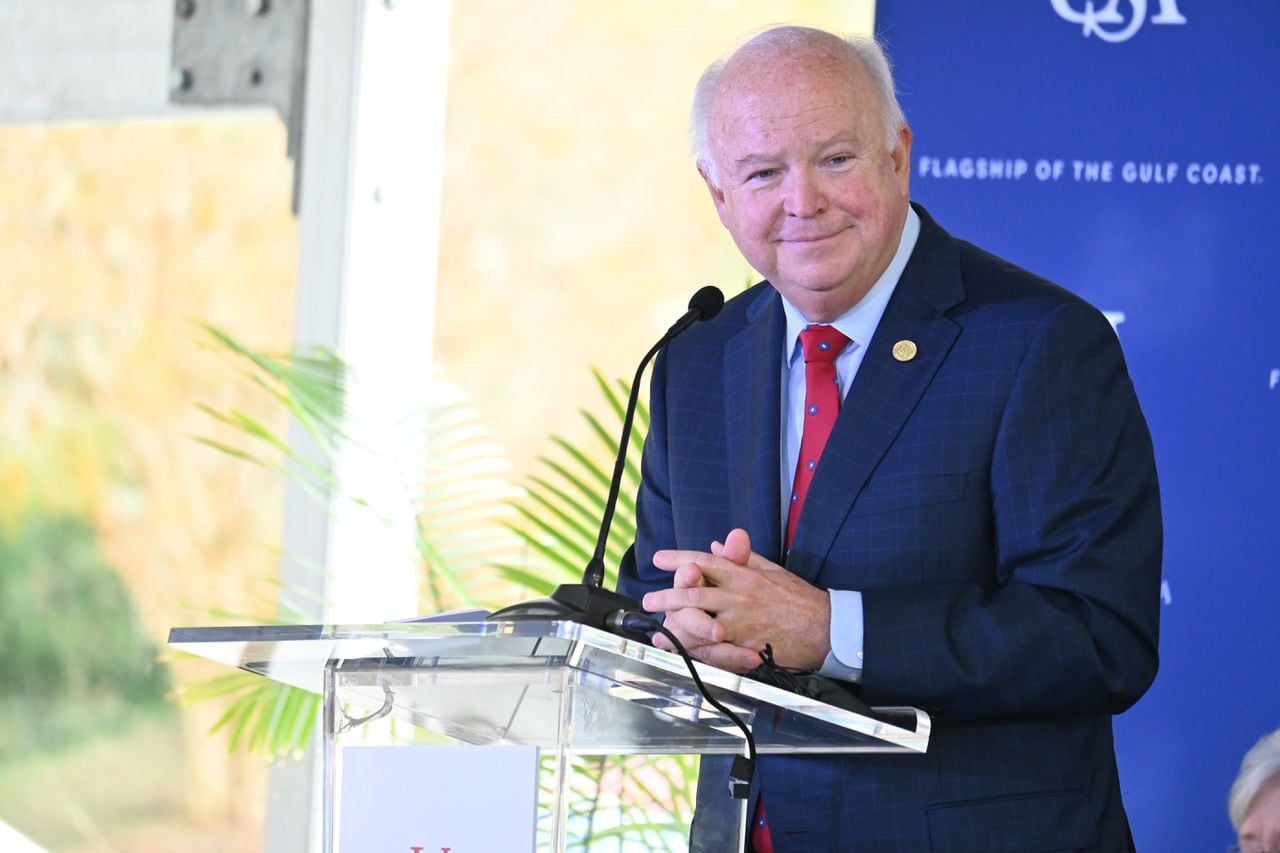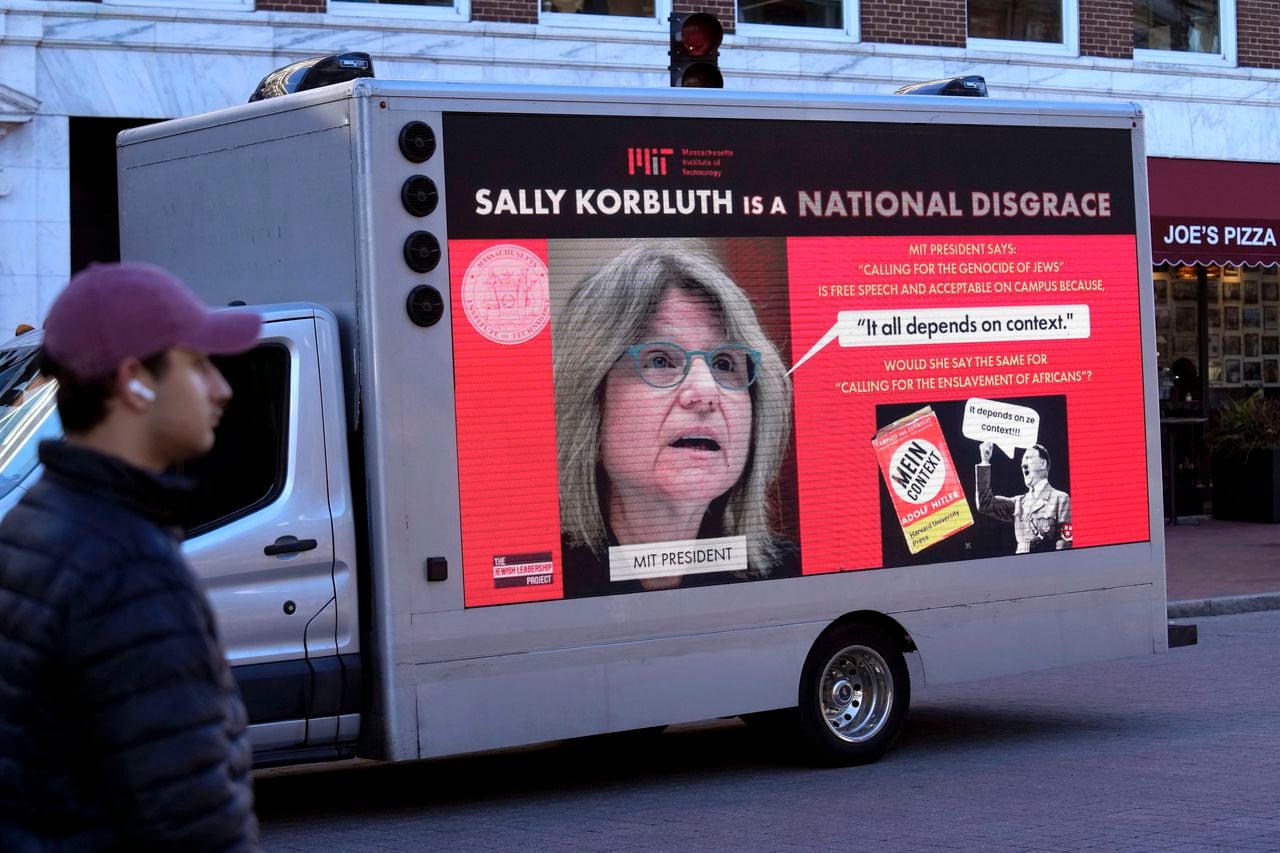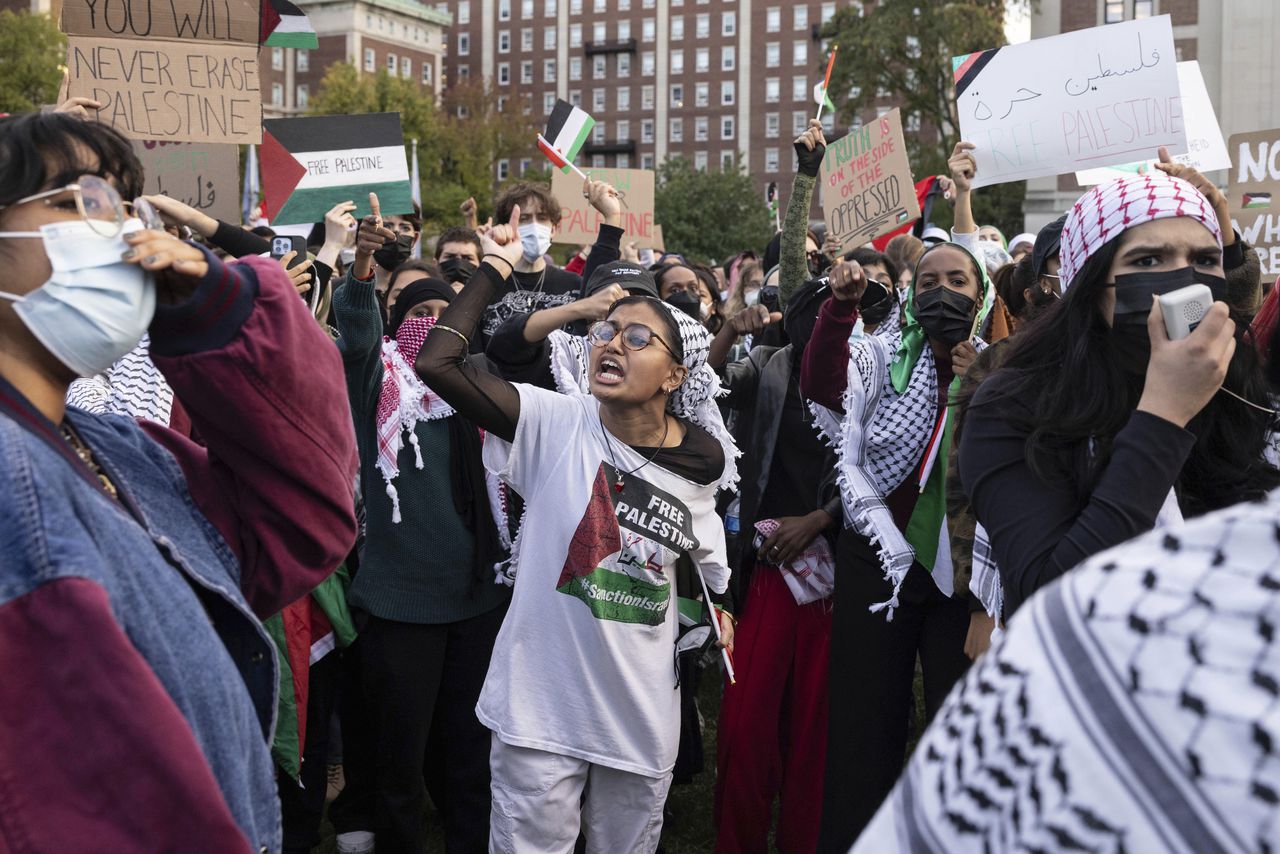Alabama avoiding antisemitism, free speech concerns roiling other campuses
A fierce debate over antisemitic language and free speech is roiling college campuses and universities nationwide, ignited by three university presidents who evaded congressional questioning last week over how they would respond to calls for the “genocide of Jews.”
But in Alabama, concerns over Jewish safety animating fierce divisions in other states with higher numbers of Jewish residents are not as big of a concern, according to university presidents and leading rabbis interviewed by AL.com in the last week.
Some of the state’s institutions also score comparably well on free speech assessments than elsewhere in the U.S. Alabama and other states in the South have far fewer incidences of antisemitism compared to other areas of the U.S., largely because there are far fewer Jewish residents living in the South outside of Florida than in the Northeast.
“I’m not saying nothing happens or that comments aren’t made to people at parties, but in general, it’s almost nonexistent relative to other universities,” said Rabbi Kussi Lipskier, executive director of the Chabad at Bama, who primarily serves the students at the University of Alabama.
Rabbi Scott Looper of Temple Beth Or in Montgomery, said he’s not heard any concerns voiced at Montgomery area schools, adding “that voicing support for the genocide of any group is unacceptable.”
“Free speech should be governed by responsibility – no incitement to violence, no threat,” he said.
Rising cases
Palestinian supporters gather for a protest at Columbia University, Thursday, Oct. 12, 2023, in New York City. The federal government has opened civil rights investigations at seven schools and universities over allegations of antisemitism or Islamophobia since the outbreak of the Israel-Hamas war.Yuki Iwamura | AP Photo
The reactions from university officials in Alabama come as antisemitism incidences reported in the U.S. have surged 337% since the Oct. 7 attack by Hamas on Israel, reaching the highest number during any two-month period tracked by the Anti-Defamation League since 1979.
From Oct. to Dec. 7, the ADL reported 2,031 antisemitic incidences, up from 465 incidences during the same period in 2022. On average, over the last 61 days, Jews in America experienced nearly 34 antisemitic incidences per day in the U.S.
An overwhelming majority of incidences appear to be happening on the East Coast and California, according to an interactive map the ADL posted on its website. In Alabama, there have been four antisemitic instances since Oct. 7, while neighboring Mississippi has not reported any. Louisiana has had three, Georgia has had six.
The incidences in Alabama include an Oct. 8 vandalism at a pizzeria in Auburn, an Oct. 19 harassment incident in Chelsea, and anti-Israel rallies in Birmingham and Huntsville, both occurring in October.
Alabama, like the rest of the U.S., has seen an overall increase in antisemitic activity in the past two years. According to ADL’s 2022 audit, there were 28 total incidences in Alabama, up from 6 each year from 2019-2021.
David Hoffman, senior associate director of Leadership Development Programs at the ADL, said the general trend his organization sees is that where there are larger Jewish communities, there are more incidences of antisemitism reported.
“Furthermore, we rely heavily on members of the community reporting incidents to us,” Hoffman said. “It should not be surprising that individuals who are in a smaller minority of their community would be more hesitant to report on misconduct targeting them out of fear for being further victimized.”
More than nine in 10 Jews (91%) in the U.S. live in 20 states – Florida, Georgia, North Carolina, Virginia and Texas being the only states in the South, according to the American Jewish Population Project through Brandeis University in Waltham, Mass.
About six in 10 of Jews live in five states – New York, California, Florida, New Jersey, and Pennsylvania.
Alabama, according to one analysis, has added 4,325 Jewish residents in the past 123 years, tracing back to 1899. The state’s 10,325 Jewish population accounts for only 0.2 percent of its overall 2020 Census count.
None of the state’s public or private universities are listed among the Top 60 schools for Jewish population by Hillel International.
In the South, Tulane University — a private institution with 7,350 undergraduate students in New Orleans — stands out by ranking No. 4 with 44% of its enrollment consisting of Jewish students. By comparison, the University of Alabama’s undergraduate enrollment of 31,360 consists of approximately 1,000 Jewish students, or 3%, according to Hillel.
Alabama reactions

Jo Bonner, president of the University of South Alabama, speaks during a groundbreaking for a new 250,000-square-foot Frederick P. Whiddon College of Medicine building on Friday, Dec. 8, 2023, on the campus of the University of South Alabama in Mobile, Ala.John Sharp/[email protected]
Despite low numbers, university officials in Alabama say they are staying on top of the rising concerns.
University of South Alabama President Jo Bonner, on Friday following a groundbreaking for a new medical school building, told AL.com that USA officials and student leaders have been meeting since right after the Oct. 7 attacks to discuss ways to “comfortably and safely” discuss international affairs.
“There were group sessions and opportunities for people to talk about what they were seeing,” said Bonner, a former Republican congressman. “I think when you live in a country where you are blessed to have free speech and freedom of the press and other freedoms, we have to be careful about using those freedoms when we incite hostility and hatred.”
He added, “I’ve been proud of our students and faculty who lead these conversations or are a part of them, where we have not joined the ranks with some of the universities especially on the East Coast that seem to believe to think it’s OK.
“I’m not surprised by our reaction,” Bonner said. “Our students have been mature and responsible in talking with each other about what they are seeing as opposed to trying to find a microphone and trying to get national attention.”
USA, Troy University, Auburn University, and the University of North Alabama have not had any reported incidences of antisemitism since Oct. 7.
Lipskier said he’s unaware of any incident occurring in Tuscaloosa.
“The University of North Alabama’s mission is to be innovative, inclusive, engaged, evolving, and global,” said university spokeswoman Michelle Eubanks. “As such, we strive to promote an atmosphere that is free of discrimination of any sort. All members recognize that we are integral part of the community and will respect, honor and protect the freedom and dignity of all.”
Jack Hawkins Jr., the chancellor Troy University, said their code of conduct “clearly classifies any such behavior as harassment,” referring to violent or threatening speech.
“Troy University values the marketplace of ideas that rightly thrives on college campuses, and we endeavor to ensure freedom of speech extends to all students, faculty, and staff,” Hawkins said in a statement. “However, we strongly opposed discrimination and harassment in any form, including antisemitism and violent threats.”
Free speech

A truck with electronic panels drives along a street Tuesday, Dec. 12, 2023, near Harvard University, in Cambridge, Mass., while displaying messages calling attention to a recent controversy involving testimony to Congress by presidents of three prestigious schools, including Harvard University, MIT, and the University of Pennsylvania. Harvard President Claudine Gay will remain leader of Harvard following her comments last week at a congressional hearing on antisemitism, the university’s highest governing body announced Tuesday. (AP Photo/Steven Senne)AP
Free speech concerns at colleges around the U.S. are part of the fallout from a Dec. 5 congressional hearing when three university presidents came under fire for being evasive in their responses on a question about speech aimed at the “genocide of Jews.”
One of them – University of Pennsylvania President Liz Magill – resigned Saturday. Harvard University President Claudine Gay, who also faced intense backlash, will remain in her position.
Magill, Gay, and Massachusetts Institute of Technology President Sally Kornbluth testified as part of a congressional inquiry over a rise of antisemitism on college campuses and universities since Hamas attacked Israel on Oct. 7.
The trio were criticized for giving non-answers to repeated “Yes” or “No” questioning from Republican U.S. Rep. Elise Stefanik of New York on whether calling for the genocide of Jews would violate their schools’ codes of conduct regarding bullying and harassment. The presidents said it would be a “context-dependent decision” on whether a violation occurred.
In the days after the hearing, the ACLU has released a statement saying the First Amendment protects all forms of speech “no matter how offensive” the content.
“Universities have effectively had a lot of double standards on what speech is protected and what speech is investigated and suppressed,” said Keith Whittington, professor of politics at Princeton University who will serve, next fall, as director of a new free speech and academic freedom center at Yale University.
“Rather than question the double standards, universities are likely to decide that they just need to shift the line a bit on which speech they will suppress,” he said.
Alabama performs relatively well on free speech rankings issued by the Foundation for Individual Rights and Expression, which advocates free speech in America. The organization, each year, ranks hundreds of colleges for their protection of students’ rights and open inquiry.
Auburn University was No. 2 out of 248 colleges surveyed by the organization, earning high marks for tolerance. It is one of only four colleges to be given a “Good” report for speech climate. The only other Alabama-based universities surveyed included the University of Alabama’s Tuscaloosa campus (No. 154, “Slightly Below Average” speech climate), University of Alabama at Huntsville (No. 72, “Average” speech climate), and University of Alabama at Birmingham (No. 43, “Slightly Above Average” speech climate).
Harvard and the University of Pennsylvania were at the bottom of the rankings.
Nadine Strossen, professor at New York Law School and a past president of the ACLU, said that despite the rankings, “all of the schools came out very badly” related to factors that lead to causing speech suppression and students “being afraid of other students.”
At Auburn, for instance, the university ranked low – 247th, for “Tolerance for Liberal Speakers.” The university, according to the rankings, is considered “conservative.” The university’s openness score was also somewhat low compared to other universities.
“Peer pressure, cancel culture, and fear of saying something unintentionally may be viewed as insensitive,” said Strossen, who participated with Whittington during a free speech and civil discourse panel at the University of Alabama in early 2022. “The conclusion of this analysis is that the difference between the highest rated schools and the lowest rated schools is negligible on that factor. Pressures are to self-censure and not address topics on race, gender, immigration and police issues. And we know that is a pervasive problem that stems beyond campuses.”
